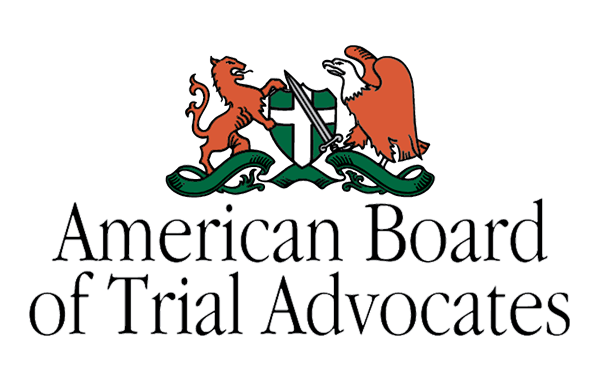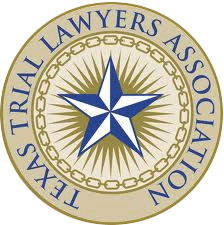The untimely loss of a loved one is an emotional and challenging experience, especially when their death is the result of another’s negligence or misconduct. In Texas, wrongful death cases are a means for the surviving family members to seek justice and compensation for their loss. Understanding the legal process involved can provide clarity and guidance during such a difficult time. This comprehensive overview will explain the key steps and considerations in pursuing a wrongful death claim in Texas.








Understanding Wrongful Death Claims
In Texas, a wrongful death claim arises when an individual dies due to the wrongful act, neglect, carelessness, unskillfulness, or default of another person or entity. The purpose of these claims is to provide financial compensation to the surviving family members who have suffered emotionally and financially due to the loss. Under Texas law, only specific family members are eligible to file a wrongful death claim. These include the surviving spouse, children, and parents of the deceased. Siblings and more distant relatives are not eligible to bring such claims.
Initiating the Legal Process
The first step in a wrongful death case is to consult with an experienced attorney who can evaluate the circumstances of the death and determine the viability of a wrongful death claim. The attorney will gather initial information, such as the details surrounding the death, the relationship between the deceased and the potential claimants, and any available evidence indicating negligence or misconduct.
Once the attorney determines that there is a basis for a wrongful death claim, they will begin the process of investigating the case. This investigation typically involves gathering evidence, interviewing witnesses, and consulting with medical and forensic specialists to establish a clear picture of what happened and who is responsible. The attorney will also review relevant medical records, police reports, and any other documents that can support the claim.
Filing the Wrongful Death Lawsuit
After completing the investigation, the attorney will prepare and file a wrongful death lawsuit in the appropriate Texas court. The complaint will outline the facts of the case, identify the defendants, and state the legal grounds for the wrongful death claim. It will also specify the damages being sought, which can include compensation for medical expenses, funeral costs, loss of income, loss of companionship, and emotional distress.
Once the lawsuit is filed, the defendants will be formally notified and given the opportunity to respond. In many cases, the defendants will file an answer to the complaint, denying liability and potentially raising various defenses. This initiates the pretrial phase of the case, during which both parties will engage in discovery.

Protecting Your Rights
The Discovery Process
Discovery is a critical phase in a wrongful death case, as it allows both sides to gather and exchange information that is relevant to the claims and defenses. This process includes written discovery, such as interrogatories and requests for documents, as well as depositions, where witnesses and parties are questioned under oath.
During discovery, the plaintiffs’ attorney will seek to obtain evidence that supports the claim of wrongful death, such as witness statements, opinions, and documentation of the damages suffered by the surviving family members. The defense attorney will similarly gather evidence to challenge the plaintiffs’ claims and build a defense strategy.
The discovery process can be lengthy and complex, often taking several months or even years to complete. It requires meticulous attention to detail and strategic planning to ensure that all relevant information is obtained and properly utilized in building the case.
Negotiating a Settlement
Many wrongful death cases in Texas are resolved through settlement negotiations rather than proceeding to trial. A settlement is an agreement between the parties to resolve the case without the need for a court trial. Settlements can occur at any stage of the legal process, but they often take place after the discovery phase, when both sides have a clearer understanding of the strengths and weaknesses of the case.
Settlement negotiations involve discussions between the plaintiffs’ attorney and the defense attorney, sometimes with the assistance of a mediator. The goal is to reach an agreement that provides fair compensation to the surviving family members while avoiding the uncertainties and expenses of a trial.
If a settlement is reached, the terms will be put in writing and signed by both parties. The settlement agreement will typically include a release of all claims against the defendants, meaning that the plaintiffs agree not to pursue any further legal action related to the wrongful death.
Preparing for Trial
If a settlement cannot be reached, the wrongful death case will proceed to trial. Trial preparation is a comprehensive and demanding process that involves several critical steps. The plaintiffs’ attorney will develop a trial strategy, prepare witnesses, and organize the evidence to present a compelling case to the jury.
This preparation includes creating exhibits, such as photographs, diagrams, and documents, that visually support the plaintiffs’ claims. It also involves rehearsing direct and cross-examinations with witnesses to ensure they are ready to testify effectively. Additionally, the attorney will prepare opening statements and closing arguments that succinctly present the case to the jury.
The Trial Process
During the trial, both the plaintiffs and the defendants will present their cases to the jury. The trial typically begins with opening statements, where each side outlines their version of the events and what they intend to prove. The plaintiffs’ attorney will present their case first, calling witnesses and introducing evidence to establish the defendants’ liability and the damages suffered by the surviving family members.
After the plaintiffs have presented their case, the defense will have the opportunity to present their evidence and witnesses to refute the claims of wrongful death. This may include presenting evidence that challenges the plaintiffs’ version of events, introduces alternative explanations for the death, or mitigates the damages claimed.
Once both sides have presented their cases, closing arguments will be made, summarizing the evidence and urging the jury to reach a favorable verdict. The jury will then deliberate and render a verdict, determining whether the defendants are liable for the wrongful death and, if so, the amount of damages to be awarded.
Post-Trial Motions and Appeals
After the trial, either party may file post-trial motions to challenge the jury’s verdict or seek other relief from the court. These motions can include requests for a new trial, motions for judgment notwithstanding the verdict, or motions to alter or amend the judgment. The court will consider these motions and issue a ruling based on the arguments and evidence presented.
If either party is dissatisfied with the outcome of the trial or the post-trial motions, they may choose to appeal the case to a higher court. The appeals process involves submitting written briefs and presenting oral arguments to an appellate court, which will review the trial record and determine whether any legal errors occurred that warrant a reversal or modification of the verdict.
The Importance of Legal Representation
Navigating a wrongful death case in Texas requires a thorough understanding of complex legal principles and procedures. It is essential for the surviving family members to have competent legal representation to protect their rights and interests throughout the process. An attorney with experience in wrongful death cases can provide invaluable assistance in gathering evidence, negotiating settlements, and presenting a persuasive case at trial.
The legal process of a wrongful death case in Texas is multifaceted and demanding, requiring meticulous preparation, strategic planning, and a deep understanding of the law. For families who have lost a loved one due to someone else’s negligence or misconduct, pursuing a wrongful death claim can provide a sense of justice and financial relief during a difficult time. If you are facing such a situation, it is crucial to seek the guidance of a dedicated attorney who can navigate the complexities of the legal system on your behalf.
Contact Chavez Law Firm Today, and Begin Fighting for the Justice You Deserve
At Chavez Law Firm, we understand the profound impact that a wrongful death can have on a family. Our compassionate attorneys are committed to providing the support and advocacy you need to pursue justice for your loved one. Contact us today to schedule a consultation and learn more about how we can assist you in your wrongful death case. We are here to stand by your side every step of the way, ensuring that your rights are protected and that you receive the compensation you deserve.



